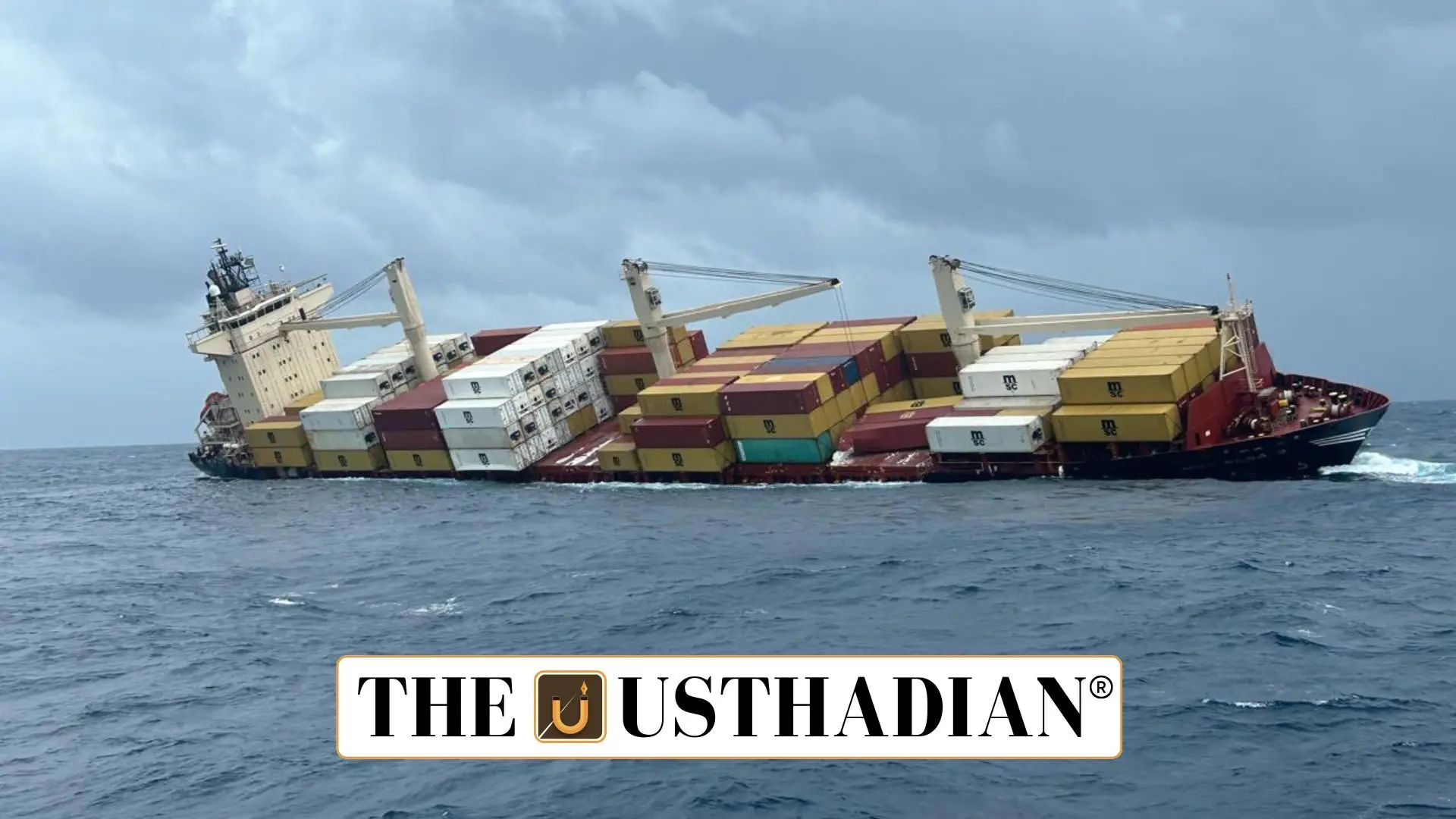Emergency along Kerala coast
Kerala Declares Emergency as Container Ship Capsizes Near Coast: A sudden maritime disaster has pushed Kerala into emergency mode after a Liberian container ship capsized near its shoreline. What started as a shipping accident has now turned into an ecological concern, as the Indian Coast Guard suspects a potential oil spill. To make matters worse, the vessel was also carrying Calcium Carbide, a highly reactive chemical that becomes dangerous when it comes in contact with seawater.
Why calcium carbide is dangerous?
Calcium Carbide is a greyish-white chemical used in industrial applications. When it reacts with water, it produces acetylene gas, which is highly flammable. In marine environments, this reaction can cause sudden explosions or fires. Kerala’s coastal communities are already on alert as authorities are monitoring signs of this reaction near the wreck.
Understanding oil spills
An oil spill refers to the unintentional release of petroleum-based substances into marine ecosystems. It usually happens due to accidents involving tankers, offshore drilling rigs, or ships. The consequences are harsh. Oil poisons marine life, starting from algae—the base of the food chain. Fish and crustaceans suffer, especially in hatcheries. Even filter-feeding creatures like clams and mussels face tar deposition. In such cases, both ecology and livelihoods are hit hard.
How oil spills are cleaned?
India uses a combination of technologies to reduce the damage. One of the key solutions is bioremediation. Bacteria-based tools like Oilzapper and Oilivorous-S, developed by TERI, are sprayed onto oil patches to convert harmful hydrocarbons into harmless by-products.
Then there are sorbents—materials that absorb oil from water. Interestingly, the milkweed plant found in Rajasthan has fibers ideal for this job. These fibers are eco-friendly and effective.
Other methods include:
- Oil booms, which are floating barriers that surround the spill and contain it.
- Skimmers, which collect and remove oil from the water’s surface.
Regulatory mechanisms in place
India follows multiple global and domestic frameworks for dealing with oil spills:
- MARPOL 1973: A global convention to prevent pollution from ships, especially focusing on oil and chemicals.
- BUNKER Convention 2001: Makes shipowners legally responsible for damage caused by bunker oil leaks.
- Merchant Shipping Act 1958: India’s main maritime law, which includes rules on marine pollution.
- National Oil Spill Disaster Contingency Plan (1996): This makes the Indian Coast Guard the nodal agency to handle such emergencies in Indian waters.
Static GK nugget: India’s coastline stretches over 7,500 km, making maritime disaster preparedness a vital part of environmental governance.
Static Usthadian Current Affairs Table
| Topic | Details |
| Kerala Emergency Trigger | Capsizing of Liberian ship near Kerala coast |
| Major Hazards | Oil spill and Calcium Carbide leakage |
| Chemical Reaction | Calcium Carbide reacts with water to form flammable acetylene gas |
| Marine Impact | Harms algae, fish, crustaceans, and benthic species |
| Cleanup Technology | Oilzapper, Oilivorous-S, milkweed fiber, oil booms, skimmers |
| Key Laws | MARPOL, BUNKER Convention, Merchant Shipping Act |
| Nodal Indian Agency | Indian Coast Guard under National Oil Spill Disaster Contingency Plan |
| Static GK Fact | India’s coastline spans over 7,500 km |








